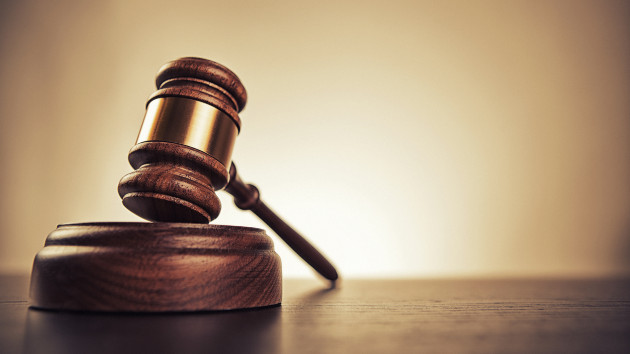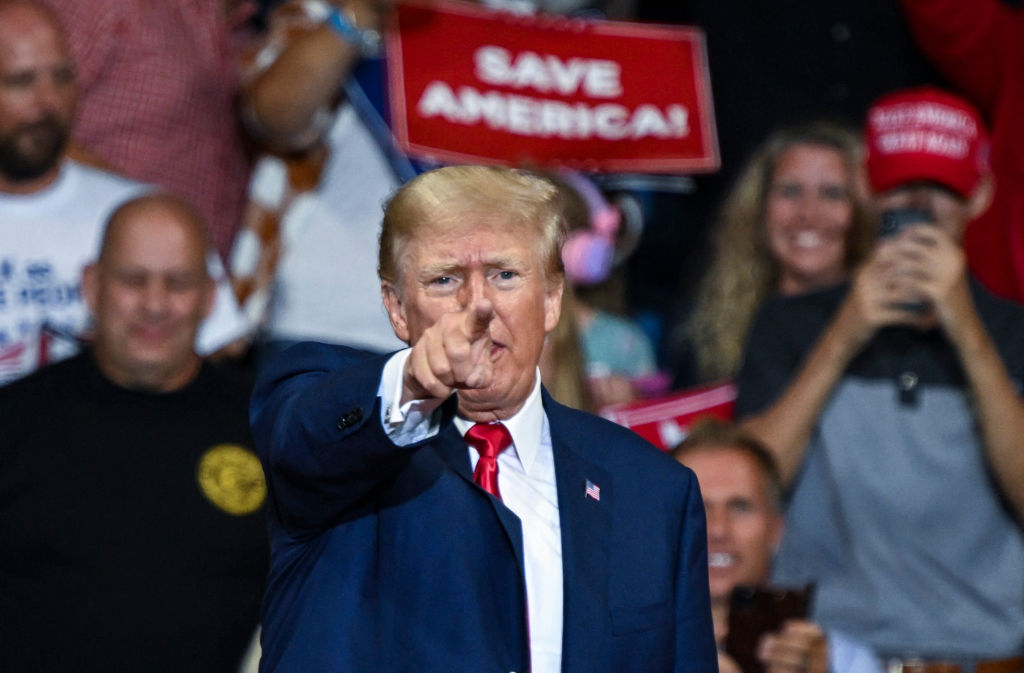
(NEW YORK) — Steve Bannon, a onetime political adviser to former President Donald Trump, pleaded not guilty in Manhattan criminal court Thursday to charges of defrauding donors to the “We Build the Wall” fundraising campaign for a wall along the U.S.-Mexico border.
The six-count indictment charges Bannon and “We Build the Wall” itself with two counts of money laundering, which carries a maximum sentence of five to 15 years in prison. There are additional felony counts of conspiracy and scheme to defraud along with one misdemeanor count of conspiracy to defraud.
Bannon was released following his arraignment and is scheduled to return to court on Oct. 4.
“I’m going to stay and fight this,” he told reporters as he left the courthouse. “With this case, I’m begging you to remember the presumption of innocence.”
Earlier Thursday, as he arrived at the courthouse to surrender to authorities, he told reporters the charges were “all about 60 days to the election.”
“This is an irony, on the very day the mayor of this city has a delegation down on the border, they are persecuting people here who try to stop them on the border,” Bannon said, referring to a fact-finding delegation New York City Mayor Eric Adams has sent to Texas following the decision by Texas Gov. Greg Abbott to bus migrants to New York.
The state charges, brought by the Manhattan District Attorney’s Office, resemble federal charges for which Bannon received a pardon by Trump, and allege that Bannon and “We Build the Wall” defrauded 430 Manhattan-based donors out of $33,600. Across New York state, there were more than 11,000 donors defrauded out of more than $730,000, according to the indictment.
The pardon by Trump only applied to the federal case and does not preclude the state charges.
The indictment quotes Bannon telling donors at a June 24, 2019, fundraising event, “Remember, all the money you give goes to building the wall.”
Manhattan District Attorney Alvin Bragg, speaking at a news conference announcing the charges Thursday afternoon, said that We Build the Wall raised $15 million from donors across the country based on “false pretenses,” citing a pledge organizers made that the group’s president would take no salary.
Instead, the campaign’s president, Brian Kolfage, received a salary of $250,000 that was secretly funneled to him by Bannon, who “directed” We Build the Wall to transfer tens of thousands of dollars to a nonprofit that he controlled, which then paid Kolfage, “thereby obscuring the source of funds,” according to Bragg.
“It is a crime to turn a profit by lying to donors, and in New York, you will be held accountable,” Bragg said. “As alleged, Stephen Bannon acted as the architect of a multi-million dollar scheme to defraud thousands of donors across the country — including hundreds of Manhattan residents.”
“Mr. Bannon took advantage of his donors’ political views to secure millions of dollars which he then misappropriated. Mr. Bannon lied to his donors to enrich himself and his friend,” added New York Attorney General Letitia James, whose office participated in the investigation.
Kolfage and Andrew Badolato, both of Florida, were indicted with Bannon in the federal case and pleaded guilty in April in connection with their role in the alleged scheme to defraud “We Build the Wall” donors.
A fourth defendant, Timothy Shea, stood trial in a case that ended in a mistrial.
Kolfage and Badolato are not named in the state indictment, but are referenced as co-conspirators 1 and 2, a sign they could have assisted Manhattan prosecutors build their case against Bannon.
The quartet allegedly used some of the $25 million raised through “We Build the Wall” on personal expenses, including a luxury SUV, a golf cart, and cosmetic surgery, the federal indictment said.
“The defendants defrauded hundreds of thousands of donors, capitalizing on their interest in funding a border wall to raise millions of dollars, under the false pretense that all of that money would be spent on construction,” then-U.S. Attorney Audrey Strauss said when the charges were announced in 2020.
“My sole intent was to raise funds and donate those funds to the federal government,” Kolfage told the judge in the federal case.
“And you promised that 100% of the money would be used to build that wall? Is that right?” Judge Analisa Torres asked.
“Yes, your honor,” Kolfage replied.
“After keeping that large sum of money for yourself, you did not tell the IRS you received the money. Is that right?” Torres asked.
“Yes, your honor,” Kolfage answered.
Bannon’s surrender Thursday makes him the third defendant pardoned by Trump to subsequently face charges brought by the Manhattan District Attorney’s Office.
Paul Manafort, Trump’s one-time campaign boss, was charged with running a two-year scheme to obtain more than $19 million in residential mortgage loans based on fraudulent representations to various banks. The New York Court of Appeals ultimately threw out the case, deeming it too similar to Manafort’s federal conviction and therefore double jeopardy.
In the state case against Bannon, double jeopardy is not expected to apply because a jury was never convened to weigh the federal fraud charges over “We Build the Wall.”
Ken Kurson, a former editor of the New York Observer, associate of Jared Kushner and speechwriter for Rudy Giuliani, was pardoned by Trump in a federal cyberstalking case. Kurson eventually pleaded guilty to two state-level misdemeanors that accused him of spying on his former wife’s computer.
Kurson is due back in court next week so the judge can make sure he’s complying with his community service.
Trump pardoned Kurson during his final moments in office, but then-Manhattan District Attorney Cy Vance announced an indictment seven months later that charged Kurson with eavesdropping and computer trespass.
Kurson, in 2015, surreptitiously installed spyware on his ex-wife’s computer from his work computer at the Observer in 2015, according to the indictment.
“We will not accept presidential pardons as get-out-of-jail-free cards for the well-connected in New York,” Vance said in a statement at the time the charges against Kurson were announced in 2021.
Copyright © 2022, ABC Audio. All rights reserved.







